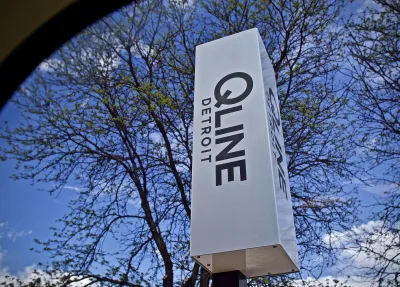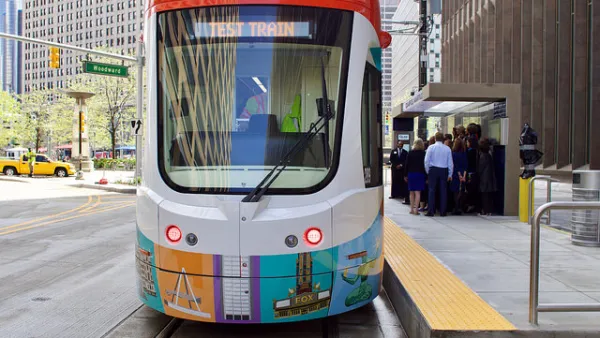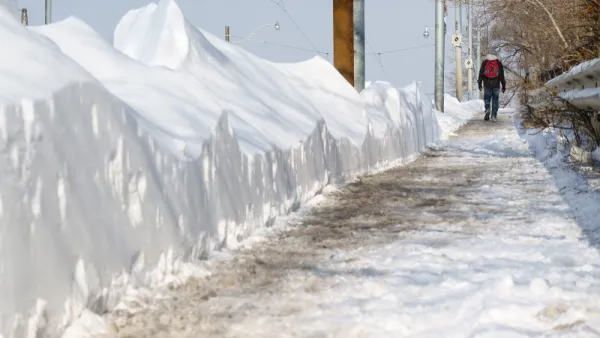Since Detroit's new streetcar system started charging, ridership has dropped. Those who are riding aren't necessarily paying anyways.

Starting September 5, Detroit's new QLine streetcar system has begun charging fares after a summer where rides were free. The result has been a drop in ridership from 5,000 to 3,000 daily riders. Chad Livengood of Crain's Detroit Business writes that the young system operator's are still bullish on the system's prospects after seeing signs of ridership growth in evening commuters and for special events. However, one of the challenges is still getting riders to pay the fare.
The percentage of riders actually paying was 40 percent, which QLine spokesman Dan Lijana said is higher than 32.5 percent national average of similar downtown city rail systems.
At a 40 percent pay rate, that means an average of 1,200 riders are paying fares on a daily basis through either daily, monthly or annual passes.
The QLine's operators have a goal of an average daily ridership of 5,000 from this month through next September.
In addition to ongoing education programs on the new fare system through "QLine ambassadors," Livengood reports that payment enforcement through transit police may be required in the future.
FULL STORY: 40% of QLine riders paying as ridership falls

Analysis: Cybertruck Fatality Rate Far Exceeds That of Ford Pinto
The Tesla Cybertruck was recalled seven times last year.

National Parks Layoffs Will Cause Communities to Lose Billions
Thousands of essential park workers were laid off this week, just before the busy spring break season.

Retro-silient?: America’s First “Eco-burb,” The Woodlands Turns 50
A master-planned community north of Houston offers lessons on green infrastructure and resilient design, but falls short of its founder’s lofty affordability and walkability goals.

Test News Post 1
This is a summary

Analysis: Cybertruck Fatality Rate Far Exceeds That of Ford Pinto
The Tesla Cybertruck was recalled seven times last year.

Test News Headline 46
Test for the image on the front page.
Urban Design for Planners 1: Software Tools
This six-course series explores essential urban design concepts using open source software and equips planners with the tools they need to participate fully in the urban design process.
Planning for Universal Design
Learn the tools for implementing Universal Design in planning regulations.
EMC Planning Group, Inc.
Planetizen
Planetizen
Mpact (formerly Rail~Volution)
Great Falls Development Authority, Inc.
HUDs Office of Policy Development and Research
NYU Wagner Graduate School of Public Service




























